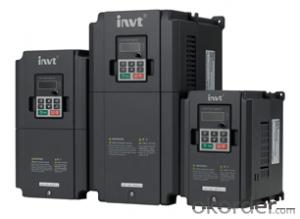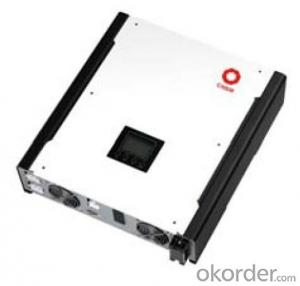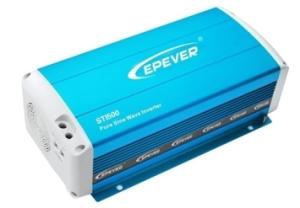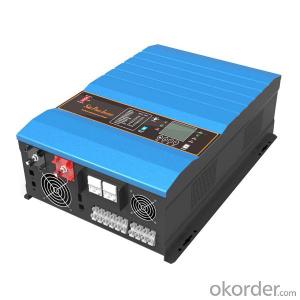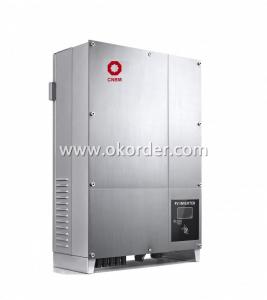Goodrive100-01 Variable Frequency Drive for PV Pump
- Loading Port:
- China main port
- Payment Terms:
- TT OR LC
- Min Order Qty:
- 100 pc
- Supply Capability:
- 10000 pc/month
OKorder Service Pledge
OKorder Financial Service
You Might Also Like
Goodrive100-01 Variable Frequency Drive for PV Pump
INVT Goodrive100-01 Variable Frequency Drive is positioned in environmental-friendly and economical PV market, the product is applicable to PV pump system, replaces water storage with electric storage and needs no battery modules. The direct current generated by solar modules is input to the inverter and then converted into the alternating current to drive various pumps directly. Additionally, the output frequency is adjustable in real time according to sunlight intensity change.
Future
1. Maximizing power generation efficiency of solar modules with the use of advanced MPPT control technology;
2. Adjusting water outflow of pumps quickly on basis of sunlight intensity change;
3. Automatic hibernation and wakeup;
(1) Hibernate at high water level and wake up at low water level;
(2) Hibernate at sunrise and sunset and wake up at strong sunlight.
4. Underload protection and fault protection of water level sensor avoiding pumping off after water supply dries up ;
5. TI DSP technology and Infineon PIM design, with functions of overcurrent, overvoltage and overtemperature protection, built-in C3 filter, achieving reliable, automatic and unattended running.
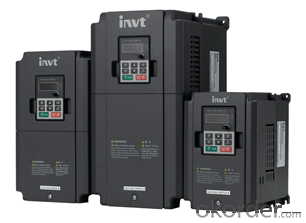
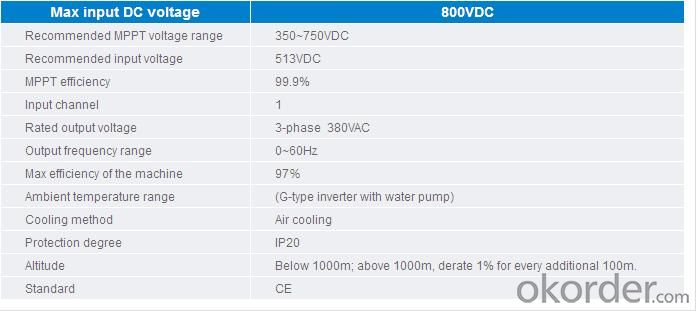
FAQ:
Q: Do you have the CE, TUV, UL Certification?
A: We’ve already passed all the tests, and any certificate is available.
Q: Have you ever sold your products to companies in my country?
A: Of course, we have customers in all general PV markets, but I think we should expand our market share along with the market growth.
Q: When did your company set up? You are a new company, how can I believe your quality?
A: We entered into Solar PV industry in 2005, now we have several plants in manufacturing of a-Si and c-Si panels, and our capacity is 220MW per year. Till now we have already passed all the tests by authorized laboratories, e.g. TUV, CE, UL.
Q: Can you help us install the module if we cooperate with you?
A: We haven’t entered into installation sector, but we have the plan in near future.
Q: How do you pack your products?
A: We have rich experience on how to pack the panels to make sure the safety on shipment when it arrives at the destination.
Q: Can you do OEM for us?
A: Yes, we can.
Q: Can we visit your factory?
A: Surely, I will arrange the trip basing on your business schedule.
- Q:What is the role of a remote monitoring system in a solar inverter?
- The role of a remote monitoring system in a solar inverter is to allow for real-time monitoring and management of the solar power generation and inverter performance from a remote location. It provides valuable insights into the system's efficiency, troubleshooting capabilities, and helps ensure optimal performance and timely maintenance. Additionally, a remote monitoring system allows for data analysis, performance tracking, and can facilitate predictive maintenance to maximize the overall efficiency and longevity of the solar inverter system.
- Q:Can a solar inverter be used with different types of energy storage systems?
- Yes, a solar inverter can be used with different types of energy storage systems. Solar inverters are designed to convert the direct current (DC) electricity produced by solar panels into alternating current (AC) electricity that can be used in homes and businesses. They can be connected to various types of energy storage systems, such as batteries, supercapacitors, or even grid-connected systems, allowing for efficient storage and utilization of solar energy.
- Q:Can a solar inverter be used in areas with high levels of electromagnetic interference (EMI)?
- Yes, a solar inverter can be used in areas with high levels of electromagnetic interference (EMI). However, it is important to ensure that the inverter is designed and equipped to handle such conditions. Certain models of solar inverters are specifically designed to mitigate the effects of EMI and provide reliable performance even in challenging electromagnetic environments.
- Q:What are the key factors affecting the cost of a solar inverter?
- The key factors affecting the cost of a solar inverter include its power capacity, efficiency, technology type, brand reputation, warranty, additional features, and installation requirements.
- Q:How does a solar inverter handle fluctuations in solar panel output?
- A solar inverter handles fluctuations in solar panel output by continuously monitoring the voltage and current from the panels. It adjusts the input parameters to maintain a stable output power, compensating for variations in sunlight intensity, temperature changes, and other environmental factors. This ensures a consistent and reliable supply of electricity from the solar panels to the connected electrical load or the grid.
- Q:Can a solar inverter be used for commercial-scale solar installations?
- Yes, a solar inverter can be used for commercial-scale solar installations. Solar inverters are essential components of any solar PV system, converting the DC electricity generated by solar panels into AC electricity suitable for commercial use. They are available in various sizes and capacities, allowing them to accommodate the power requirements of large-scale commercial installations. Additionally, advanced features like grid-tie functionality and monitoring capabilities make solar inverters suitable for integration into commercial-scale solar installations.
- Q:How long does a solar inverter last?
- A solar inverter typically lasts between 10 to 20 years, depending on various factors such as quality, usage, maintenance, and environmental conditions.
- Q:Are solar inverters weather-resistant?
- Yes, solar inverters are designed to be weather-resistant. They are typically built with durable materials and sealed enclosures to protect them from various weather conditions such as rain, snow, and extreme temperatures. However, it is always recommended to consult the manufacturer's specifications and guidelines to ensure proper installation and maintenance for optimal performance and longevity.
- Q:What is the role of maximum power control in a solar inverter?
- The role of maximum power control in a solar inverter is to optimize the performance and efficiency of the solar PV system. It ensures that the solar panels are operating at their maximum power point, allowing them to generate the highest possible amount of electricity from the available sunlight. This control mechanism adjusts the voltage and current levels to match the load requirements, enabling the inverter to deliver the maximum power output to the grid or connected devices. By actively managing and regulating the power flow, maximum power control helps to maximize the overall energy production and utilization of the solar installation.
- Q:Can a solar inverter be used with different types of grounding systems?
- Yes, a solar inverter can be used with different types of grounding systems. Most solar inverters are designed to be compatible with various grounding configurations, including but not limited to grounded, ungrounded, and impedance grounded systems. However, it is important to consult the manufacturer's specifications and guidelines to ensure proper installation and compatibility with the specific grounding system in use.
1. Manufacturer Overview |
|
|---|---|
| Location | |
| Year Established | |
| Annual Output Value | |
| Main Markets | |
| Company Certifications | |
2. Manufacturer Certificates |
|
|---|---|
| a) Certification Name | |
| Range | |
| Reference | |
| Validity Period | |
3. Manufacturer Capability |
|
|---|---|
| a)Trade Capacity | |
| Nearest Port | |
| Export Percentage | |
| No.of Employees in Trade Department | |
| Language Spoken: | |
| b)Factory Information | |
| Factory Size: | |
| No. of Production Lines | |
| Contract Manufacturing | |
| Product Price Range | |
Send your message to us
Goodrive100-01 Variable Frequency Drive for PV Pump
- Loading Port:
- China main port
- Payment Terms:
- TT OR LC
- Min Order Qty:
- 100 pc
- Supply Capability:
- 10000 pc/month
OKorder Service Pledge
OKorder Financial Service
Similar products
New products
Hot products
Related keywords
